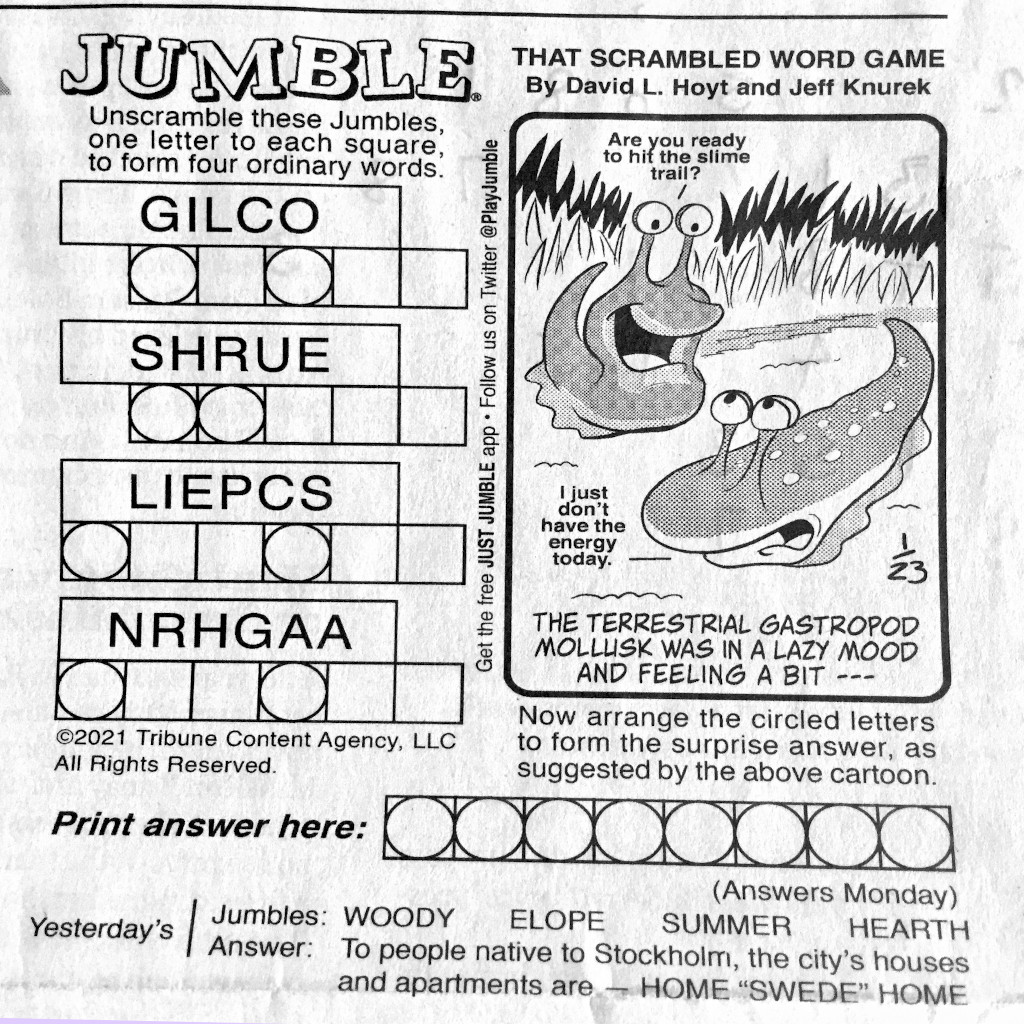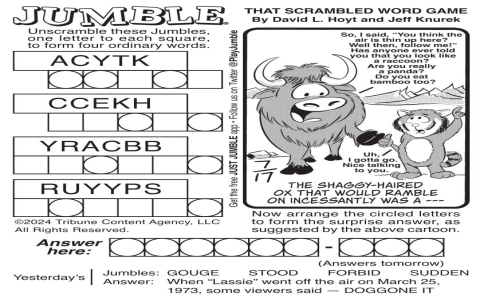Alright, so today I wanna talk about this little thing I messed around with called “jumble answers.” It’s not some groundbreaking stuff, but I figured I’d share my process anyway, might help someone out there.

First off, I stumbled upon this problem where you gotta unscramble words. Seemed simple enough, right? I mean, who hasn’t played those word games in the newspaper? But I wanted to do it programmatically, ’cause, well, why not?
So, I started by thinking about how I would do it myself. When I unscramble a word, I’m basically looking for patterns and comparing it to words I already know. A dictionary, basically. That’s where I began.
Step one: Get a word list. I found a decent sized list online. Just a plain text file, one word per line. Nothing fancy. I loaded that thing up into my script. Python, by the way. Felt like the right tool for the job.
Step two: The unscrambling logic. This is where it got a bit interesting. My initial thought was to generate all possible permutations of the jumbled word and then check if each permutation exists in my word list. Sounds easy, but the number of permutations grows fast as the word gets longer. Like, factorial fast. Not efficient. So I scrapped that plan pretty quickly.
Instead, I decided to try something smarter. I figured, if two words are anagrams of each other (like “listen” and “silent”), they must have the same letters, just in a different order. So, I sorted the letters in the jumbled word alphabetically. Then, I did the same for every word in my dictionary.

Step three: Compare the sorted strings. If the sorted version of the jumbled word matched the sorted version of a dictionary word, boom! We have a potential answer. I stored all the potential answers in a list.
Step four: Output the results. After going through the whole dictionary, I just printed out all the potential answers I found. Simple as that.
Here’s a simplified version of what the code looked like (in Python, like I said):
- Load the word list from the file.
- Define a function to sort a word alphabetically.
- Take the jumbled word as input.
- Sort the jumbled word.
- Loop through the word list:
- Sort each word in the list.
- If the sorted word matches the sorted jumbled word, add it to the results.
- Print the results.
It worked! Not super fast, but fast enough for what I needed. I could throw in a jumbled word, and it would spit out a list of possible unscrambled words from the dictionary.
Things I Learned:

- Premature optimization is the root of all evil (or at least, wasted time). I almost went down a rabbit hole of trying to optimize the permutation generation, but thankfully I stopped myself.
- Sorting is your friend. It’s a simple but powerful technique for comparing things when order doesn’t matter.
- Dictionaries are surprisingly useful. Who knew?
Next Steps:
If I were to take this further, I’d probably look at:
- Using a more efficient data structure for the dictionary (maybe a hash table or a trie) to speed up the lookup.
- Adding some kind of weighting to the results based on word frequency. So, more common words would appear higher in the list.
- Implementing some fuzzy matching to handle misspellings or partial jumbles.
But for now, it’s a fun little project that scratched an itch. Hope someone found this helpful!














